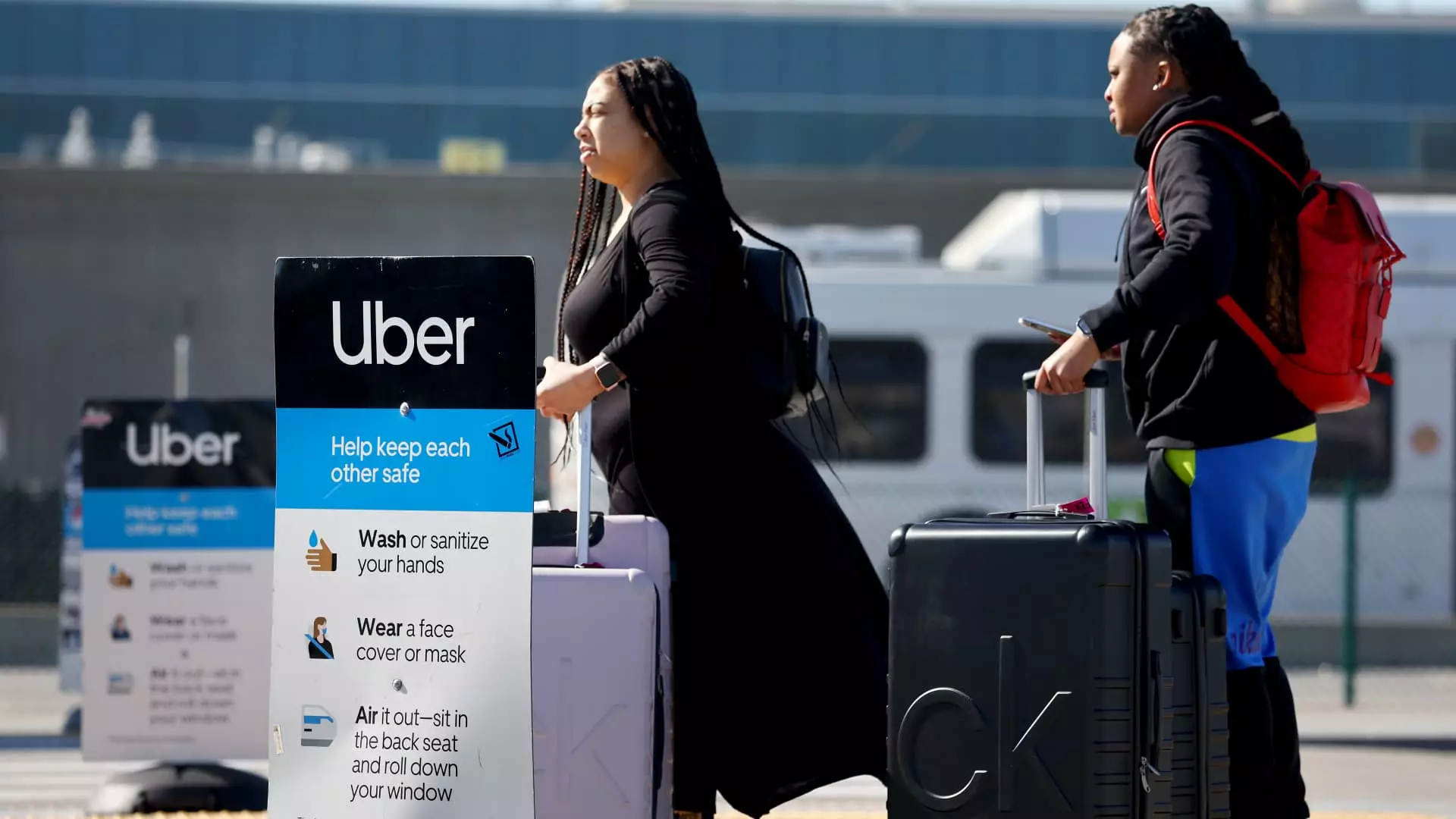In a strategic move that marks a significant shift in travel partnerships, Delta Air Lines has officially announced an alliance with Uber, terminating its eight-year collaboration with Lyft. This fresh partnership, unveiled on a Tuesday announcement, aims to streamline the travel experience for Delta’s SkyMiles loyalty members by allowing them to earn valuable miles through Uber services. This development reflects a broader trend within the airline industry, where loyalty programs are evolving to create more diverse earning opportunities.
For SkyMiles members, the new structure is beneficial: one mile will be earned for each dollar spent on UberX rides to and from the airport, two miles for premium ride options like Uber Comfort and Uber Black, and an impressive three miles for Uber Reserve trips. Furthermore, when using Uber Eats for food deliveries exceeding $40, members can still accumulate one mile per dollar spent. This revised rewards system is designed to cater to a growing number of travelers who increasingly rely on ridesharing services for seamless airport transfers.
While Delta Air Lines has not disclosed the specific reasons for choosing Uber over Lyft, the decision is likely driven by multiple strategic concerns. One factor could be the existing relationship that Delta has with American Express, a credit card partner that provides certain customers with ride and food delivery credits for Uber services. By aligning with Uber, Delta may have aimed to synthesize its loyalty offerings with those already available through American Express, creating a more cohesive travel ecosystem for its customers.
Additionally, Delta’s choice reflects Uber’s dominant position in the ridesharing market compared to its competitors, evidenced by its impressive numbers. In stark contrast to Lyft, which had 24.4 million active riders in recent months, Uber boasted 161 million monthly active users across its various platforms, including ride-hailing and food delivery. With Uber’s vast infrastructure and high usage rates, Delta is likely betting on improved customer engagement and a more rewarding experience for its loyal SkyMiles members.
The End of an Era with Lyft
As Delta transitions away from its partnership with Lyft, users who have linked accounts are granted the opportunity to continue earning miles until April 7. Delta has also assured these customers that they will receive adequate communication regarding the impending shift. In its statement following the announcement, Lyft expressed gratitude for the collaboration with Delta, emphasizing the miles earned by customers over the years. They are now looking to expand their ties with other major brands, including Alaska Airlines and Hilton, signifying their intention to sustain customer loyalty through varied partnerships.
The cessation of this long-standing partnership raises questions about its implications for Lyft’s brand equity and customer loyalty initiatives. Lyft, while reporting record growth in ride bookings and active users, will have a significant task ahead of maintaining its competitive edge in the market sans Delta’s backing.
This partnership shift is indicative of a larger transformation within the airline industry, where frequent flyer programs are increasingly intertwining with daily life conveniences. As consumer expectations grow, airlines are now prioritizing collaborations that provide customers with new ways to accumulate rewards and enhance their travel experiences. As seen with Delta’s partnerships with brands like Starbucks, Hertz, and Ticketmaster, there is a clear trend toward cultivating multifaceted loyalty networks that resonate with modern passengers.
Delta’s announcement made waves at the Consumer Electronics Show (CES) in Las Vegas, which is fitting given that the event is synonymous with technological innovation. The airline also revealed plans to introduce an artificial intelligence-powered assistant in its application and upgrade its in-flight entertainment systems—further signs that Delta is committed to enhancing its service delivery and customer satisfaction.
Ultimately, Delta Air Lines’ decision to partner with Uber signals a strategic maneuver aimed at enhancing the overall travel experience for its customers. With changes in loyalty programs and partnerships underlining the current trajectory of the airline industry, Delta is not only positioning itself for growth but is also adapting to meet the evolving needs of a technology-savvy travel demographic. As airlines look to innovate and redefine loyalty, Delta’s new venture with Uber may just be the beginning of a more integrated future for frequent flyers.

